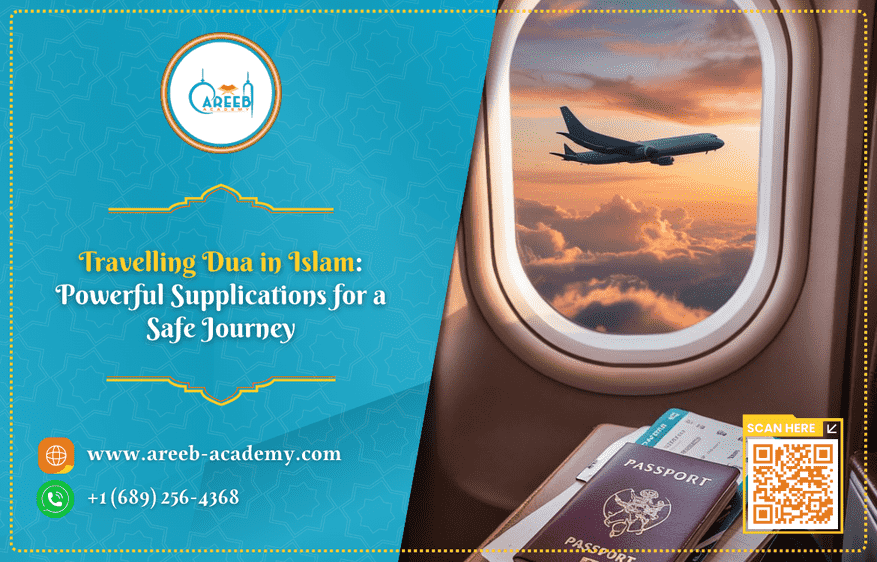
Travelling Dua in Islam is not just words to recite—they are a spiritual shield, a source of protection, and a way to maintain a deep connection with Allah while on the move. From the moment a journey begins, these supplications guide the believer in seeking safety, blessings, and ease, whether travelling for Hajj, work, study, or leisure. Understanding their meaning, following the Sunnah acts of travel, and practicing them with sincerity ensures that every step of the journey is both physically safe and spiritually rewarding.
The Main Travelling Dua in Islam
The Prophet’s ﷺ Famous Travelling Dua in Islam
One of the most well-known travelling duas in Islam that the Prophet ﷺ recited at the start of a journey is the following comprehensive supplication. It shows trust in Allah, asks for protection, and reminds us that every step is in His care.
اللَّهُ أَكْبَرُ، اللَّهُ أَكْبَرُ، اللَّهُ أَكْبَرُ، سُبْحَانَ الَّذِي سَخَّرَ لَنَا هٰذَا وَمَا كُنَّا لَهُ مُقْرِنِينَ، وَإِنَّا إِلَىٰ رَبِّنَا لَمُنْقَلِبُونَ، اللَّهُمَّ إِنَّا نَسْأَلُكَ فِي سَفَرِنَا هٰذَا البِرَّ وَالتَّقْوَى، وَمِنَ العَمَلِ مَا تَرْضَى، اللَّهُمَّ هَوِّنْ عَلَيْنَا سَفَرَنَا هٰذَا، وَاطْوِ عَنَّا بُعْدَهُ، اللَّهُمَّ أَنْتَ الصَّاحِبُ فِي السَّفَرِ، وَالْخَلِيفَةُ فِي الأَهْلِ، اللَّهُمَّ إِنِّي أَعُوذُ بِكَ مِنْ وَعْثَاءِ السَّفَرِ، وَكَآبَةِ المَنْظَرِ، وَسُوءِ المُنْقَلَبِ فِي المَالِ وَالأَهْلِ
Allahu akbar, Allahu akbar, Allahu akbar.
Subḥaanal-ladhī sakhkhara lanā hādhā wa mā kunnā lahu muqrinin.
Wa innā ilā rabbinā lamunqalibūn.
Allahuma ina Fī safarinā hādhā, nas’aluka al-birra wat-taqwā, wa minal-ʿamali mā tarḍā.
Hawwin ʿalaynā safaranā hādhā waṭwi ʿannā buʿdah.
Kun anta aṣ-ṣāḥibu fī as-safar wal-khalīfatu fil-ahl.
Aʿūdhu bika min waʿthā’is-safar, wa kaābatil-manẓar, wa sū’il-munqalab fī al-māli wal-ahl.
English Translation:
Allah is the Greatest. Glory be to the One who has made this transport available to us, though we could not have managed it on our own, and surely to our Lord we will return.
We ask You for righteousness and piety during this journey, and for actions that please You.
Make this journey easy for us and shorten its distance.
Be our Companion during travel and Guardian over our families.
Grant us refuge from the hardships of travel, distressing sights, and returning home with harm to our wealth or family.
Meaning and Benefits of Dua of travelling in Islam

This travelling dua is rich in meaning. It begins by acknowledging Allah’s greatness and recognizing that the ability to travel is a blessing granted by Him. The supplication then shifts to asking for spiritual protection—righteousness, piety, and actions that keep the traveller close to Allah.
The travelling dua in Islam also highlights the emotional and physical sides of travelling. It asks Allah to make the journey smooth, remove its burdens, and protect both the traveller and their loved ones left behind. The final words seek refuge from unexpected challenges, unsettling experiences, and unwanted outcomes.
Together, these elements make this dua a complete shield for any believer on the road.
When Exactly You Should Recite the Travelling Dua in Islam
You can recite this travelling dua at several specific moments:
Anytime during the journey
Travelling can be unpredictable. Repeating the dua brings calm, confidence, and renewed protection.
When you first begin your journey
This is the main time recorded in the Sunnah—right as you prepare to set out.
When you mount or board your transport
Whether it is a car, plane, train, or any other form of travel, recite the dua as you settle into your seat.
At the start of movement
When the car begins to move or the plane starts taxiing, recite it again for reassurance and blessing.
Additional Duas for Travel in Islam
Dua When Leaving the House

Before stepping out for your journey, it’s recommended to begin with this powerful supplication that places your trust entirely in Allah:
بِسْمِ اللهِ، تَوَكَّلْتُ عَلَى الله، لَا حَوْلَ وَلَا قُوَّةَ إِلَّا بِالله
Bismillah, tawakkaltu ʿala Allah, la hawla wa la quwwata illa billah
English Translation:
In the Name of Allah, I place my trust in Allah. There is no power or ability except through Allah.
The Prophet ﷺ said:
“من قال-يعني إذا خرج من بيته-: بسم الله توكلت على الله، ولا حول ولا قوة إلا بالله ، يقال له: هديت وكفيت ووقيت، وتنحى عنه الشيطان”
“Whoever says this du’a, it will be said to him: ‘You are guided, protected, and defended,’ and the devil will stay away from him.” (Tirmidhi)
This du’a is the perfect way to begin your journey, reminding you that Allah’s protection and control encompass every step you take.
Travelling Dua in Islam for Boarding a Car, Plane, or Any Vehicle
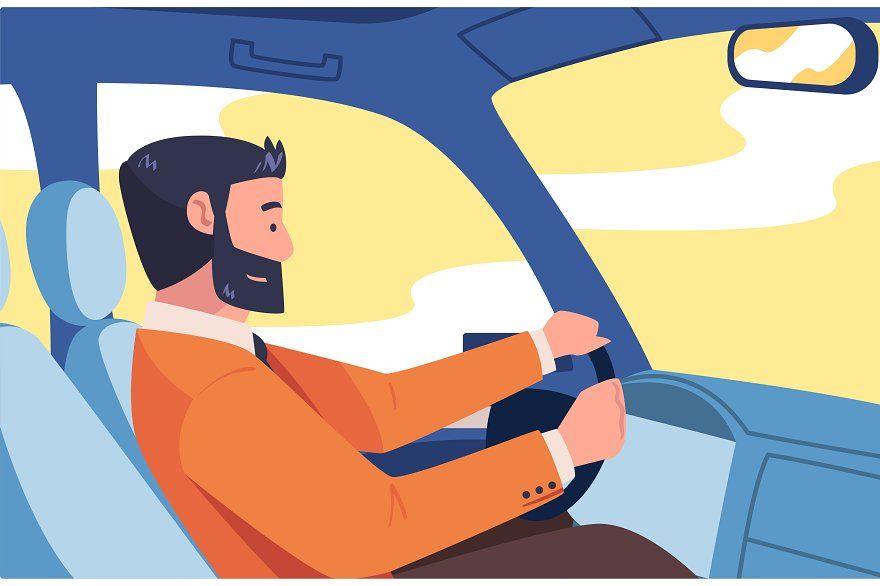
As you settle into your vehicle—whether it’s a car, train, plane, or any other form of transport—recite this supplication that expresses gratitude and acknowledges Allah’s blessings:
سُبْحَانَ الَّذِي سَخَّرَ لَنَا هَذَا وَمَا كُنَّا لَهُ مُقْرِنِينَ، وَإِنَّا إِلَىٰ رَبِّنَا لَمُنْقَلِبُونَ
Subḥānal-ladhī sakhkhara lanā hādhā wa mā kunnā lahu muqrinin, wa innā ilā rabbinā lamunqalibūn
English Translation:
Glory be to the One Who has placed this transport at our service, and we could not have managed it on our own. And surely to our Lord we will return.
This du’a helps you begin the journey with gratitude, awareness, and faith—recognizing that even the ability to travel is a mercy from Allah.
Travelling Dua in Islam for Returning Home Safely

When you arrive safely back home, recite this short but meaningful supplication of gratitude:
آيِبُونَ، تَائِبُونَ، عَابِدُونَ، لِرَبِّنَا حَامِدُونَ
Āyibūn, tā’ibūn, ʿābidūn, liRabbina ḥāmidūn
English Translation:
We return, repentant, worshipping, and praising our Lord.
This du’a is a beautiful way to acknowledge Allah’s protection during your travels and to express gratitude for returning home safely.
Short Duas for Protection and Ease During the Trip
Throughout your journey—whether you’re on the road, in the air, or crossing new places—you can recite this comprehensive travelling du’a to seek protection, ease, and blessings:
اللَّهُمَّ إِنَّا نَسْأَلُكَ فِي سَفَرِنَا هٰذَا البِرَّ وَالتَّقْوَى، وَمِنَ العَمَلِ مَا تَرْضَى، اللَّهُمَّ هَوِّنْ عَلَيْنَا سَفَرَنَا هٰذَا، وَاطْوِ عَنَّا بُعْدَهُ، اللَّهُمَّ أَنْتَ الصَّاحِبُ فِي السَّفَرِ، وَالْخَلِيفَةُ فِي الأَهْلِ، اللَّهُمَّ إِنِّي أَعُوذُ بِكَ مِنْ وَعْثَاءِ السَّفَرِ، وَكَآبَةِ المَنْظَرِ، وَسُوءِ المُنْقَلَبِ فِي المَالِ وَالأَهْلِ
Allāhumma innā nas’aluka fī safarinā hādhā al-birra wat-taqwā, wa minal-ʿamali mā tarḍā.
Hawwin ʿalaynā safaranā hādhā waṭwi ʿannā buʿdah, Allāhumma.
Anta aṣ-ṣāḥibu fī as-safar wal-khalīfatu fil-ahl, wa innī aʿūdhu bika min waʿthā’i-s-safar, kaābati-l-manẓar, wa sū’i-l-munqalab fī al-māli wal-ahl.
We ask You for piety and righteousness during this journey, and for deeds that You approve of.
Please make this journey easy for us and shorten its distance.
Be our Companion in travel and protect the family we leave behind.
Grant us refuge from the hardships of travel, distressing sights, and harm to our wealth or family.
These short dua for travelling in Islam can be recited at any moment during your trip—when you feel anxious, when the journey gets long, or simply when you want to renew your trust in Allah. They bring comfort, calmness, and a sense of divine companionship wherever you go.
Sunnah Tips for a Safe and Blessed Journey
Start Travel with Bismillah
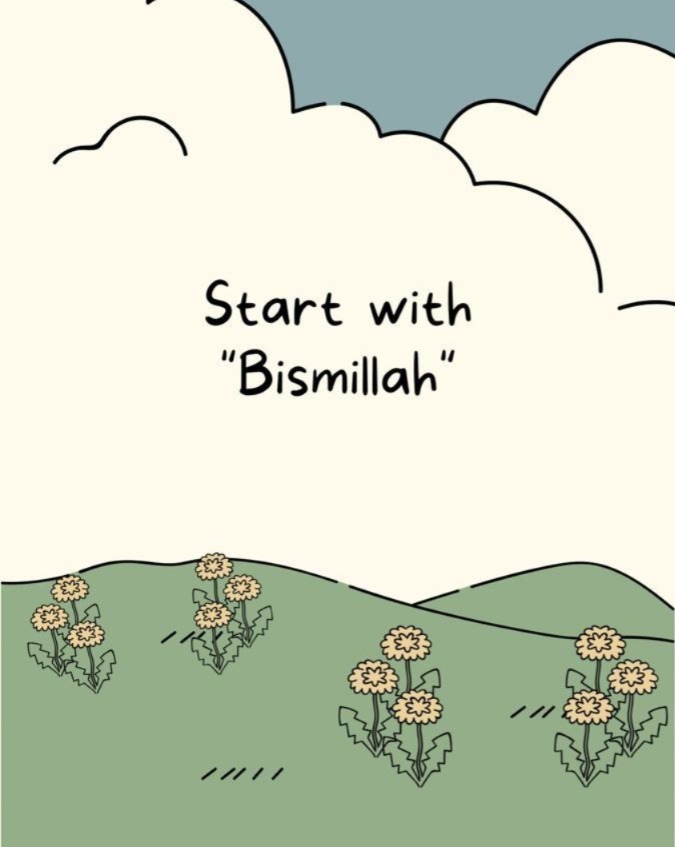
Starting your journey with the name of Allah is the first step to seeking His protection and blessings. Before stepping out, recite the travelling dua in Islam:
بِسْمِ اللهِ، تَوَكَّلْتُ عَلَى اللهِ، وَلاَ حَوْلَ وَلاَ قُوَّةَ إِلَّا بِاللهِ
Transliteration: Bismillah, tawakkaltu ‘ala Allah, wa la hawla wa la quwwata illa billah
Translation: In the Name of Allah, I place my trust in Allah; there is no power nor strength except with Allah.
Reciting this du’a not only guards you against harm but also spiritually prepares you for the journey ahead. It reminds the traveller that every step and every plan is under Allah’s guidance and mercy.
Praying Two Rakah Before Leaving
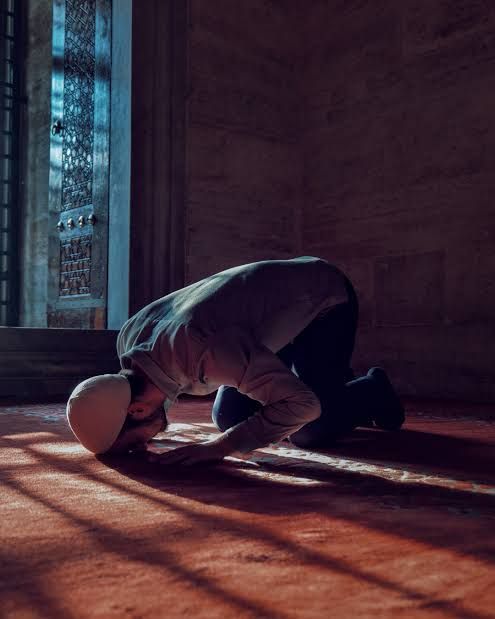
Performing a two-rak’ah prayer before departing is a blessed Sunnah of the Prophet ﷺ. This simple act invites Allah’s protection over your journey and opens the door for divine guidance. The prayer can be offered at home or in a mosque, seeking safety, barakah (blessings), and ease for your travel.
Combining this prayer with reciting the travel dua strengthens your reliance on Allah and aligns your intention with His will. This practice transforms the beginning of your trip into a moment of spiritual reflection and gratitude.
Keeping Family Informed
Before leaving, ensure your loved ones know your plans. Travel in Islam emphasizes responsibility and care for family. Letting your family know your route, expected arrival time, and companions not only promotes safety but also fulfills the Sunnah of looking after your responsibilities at home.
Traveling in groups, appointing a leader (Ameer), and starting early in the day are practical tips highlighted in the Sunnah to make journeys smoother and safer. It is also recommended to perform prayers on time and maintain good conduct throughout the trip, showing gratitude, patience, and kindness to others along the way.
Giving Charity Before Travelling
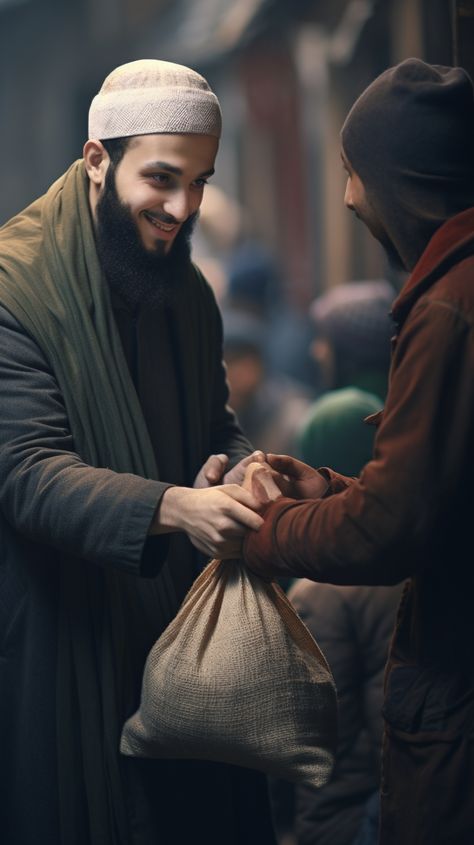
One of the most beautiful acts before starting a journey is giving sadaqah (charity). The Prophet ﷺ recommended charity as a shield against calamities. This simple act earns spiritual protection, brings blessings, and reminds us that our possessions come from Allah and should be shared.
Charity can be small—a donation, feeding someone, or helping a person in need. Its impact, both spiritually and practically, is profound. Pairing it with the travelling dua in Islam for leaving home and prayers ensures a safe, blessed, and spiritually rewarding journey.
Following these Sunnah tips—starting with Bismillah, offering two rak’ah, keeping family informed, giving charity, and reciting the travelling dua—creates a complete approach to travel. This nurtures your faith and protects your well-being.
To learn more about the regular Sunnah practices the Prophet ﷺ followed in daily life, check out our previous blog post about the Sunnah of the Prophet ﷺ [here]. It’s filled with practical advice and spiritual guidance that you can apply in all aspects of life.
Travel Etiquette in Islam (Adab al-Safar)
Be Kind to Fellow Travelers
Travel in Islam is not only a physical journey but also a spiritual one. One key etiquette is maintaining good conduct with your companions. Treat fellow travelers with respect, patience, and kindness. Help one another, remind each other of good, and maintain a positive attitude throughout the trip. The Prophet ﷺ recommended traveling with companions and appointing a wise leader (Ameer) to guide the group, ensuring safety and harmony.
Showing respect to your companions, avoiding arguments, and supporting one another spiritually and practically reflects true Islamic manners and makes the journey more blessed and secure.
Avoiding Sinful Places and Actions
While traveling, it is important to guard yourself against sinful behavior and harmful environments. Avoid arguing, backbiting, cursing, or acting harshly toward people or animals. Keep your tongue, actions, and intentions pure, and seek to do what pleases Allah at all times.
If you see a town or village you intend to enter, recite the recommended dua:
اللَّهُمَّ أَسْأَلُكَ خَيْرَهَا وَخَيْرَ أَهْلِهَا وَخَيْرَ مَا فِيهَا وَأَعُوذُ بِكَ مِن شَرِّهَا وَشَرِّ أَهْلِهَا وَشَرِّ مَا فِيهَا
Allahumma as’aluka khayraha wa khayra ahliha wa khayra ma fiha wa a’udhu bika min sharriha wa sharri ahliha wa sharri ma fiha
Translation: O Allah, I ask You for its goodness, the goodness of its people, and the goodness of what is in it. I seek refuge in You from its evil, the evil of its people, and the evil of what is in it.
This practice helps maintain spiritual safety and keeps your journey free from harm.
Maintaining Salah on Time While Travelling
Praying on time is a cornerstone of Islamic travel etiquette. Even while on a journey, make every effort to perform your prayers. Allah has made it easy for travelers through allowances like Tayammum (dry ablution) and shortening or joining prayers.
Discover the correct way to perform Tayammum in Islam with this easy-to-follow guide.
Staying mindful of your prayers ensures your connection with Allah remains strong, providing guidance, patience, and protection throughout your journey. It also aligns your travel with the Sunnah, as the Prophet ﷺ emphasized the importance of maintaining worship wherever one goes.
Reciting Quran and Dhikr on the Way
Engage in Quran recitation and Dhikr (remembrance of Allah) during travel to strengthen your heart, mind, and soul. The Prophet ﷺ encouraged travelers to make dua frequently and to keep their hearts connected to Allah. Reciting Quranic verses, travel supplications, and phrases of praise such as SubhanAllah, Alhamdulillah, Allahu Akbar transforms the journey into an act of worship.
This spiritual focus not only safeguards you but also brings barakah (blessings) to your travels, eases difficulties, and fills your heart with gratitude and tranquility.
For more tips and guidance, check out our article about learning Quran Recitation to improve your skills from home
Modern Applications of Travelling Duas
Travelling Dua in Islam for Long Flights
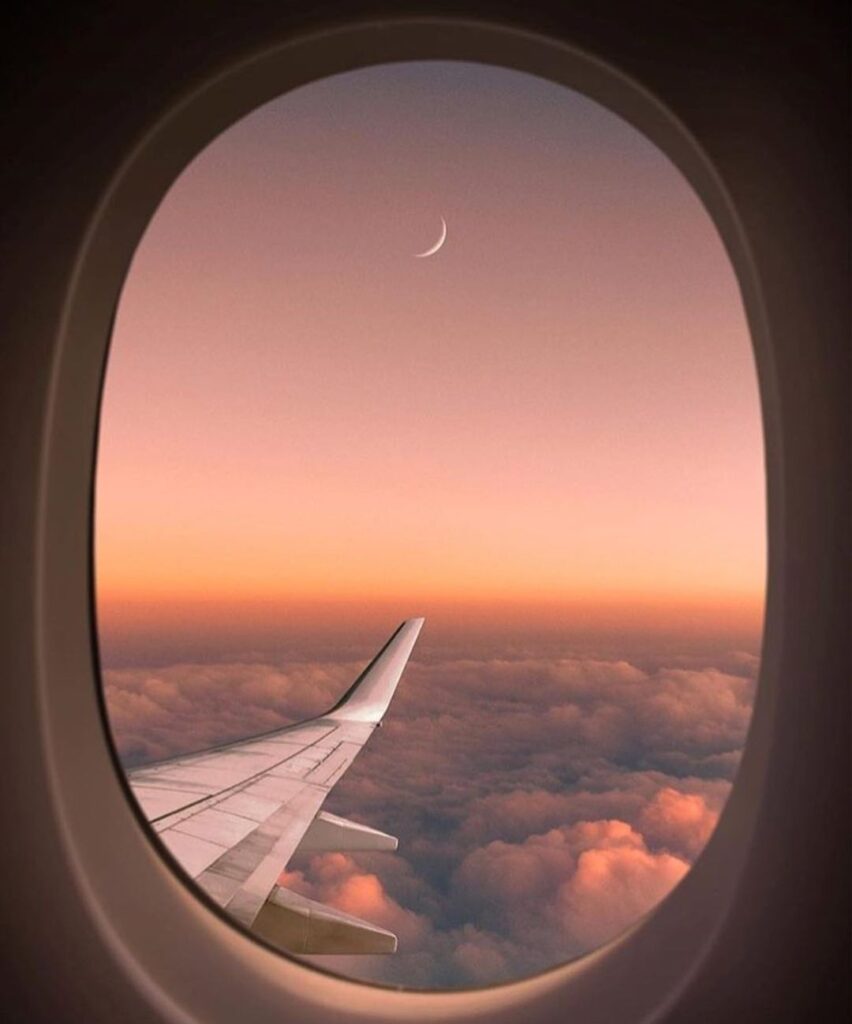
Air travel can be tiring and sometimes stressful. Before takeoff, recite the following travelling dua in Islam to seek Allah’s protection:
بِسْمِ اللَّهِ وَتَوَكَّلْتُ عَلَى اللَّهِ، لا حَوْلَ وَلا قُوَّةَ إِلَّا بِاللَّهِ
Bismillahi wa tawakkaltu ‘ala Allah, la hawla wa la quwwata illa billah
Translation: In the Name of Allah, I place my trust in Allah; there is no power nor strength except through Him.
While flying, you can also recite:
سُبْحَانَ الَّذِي سَخَّرَ لَنَا هَذَا وَمَا كُنَّا لَهُ مُقْرِنِينَ وَإِنَّا إِلَى رَبِّنَا لَمُنْقَلِبُونَ
Subhana-alladhi sakhkhara lana hadha wa ma kunna lahu muqrinin. Wa inna ila Rabbina la munqalibun
Translation: Glory be to Him Who has made this (airplane) subservient for us, though we could not have managed it on our own. To our Lord we shall return.
Reciting these du’as calms the heart, invokes Allah’s protection, and transforms travel stress into an act of worship.
Duas for Road Trips

Long drives bring unique challenges such as fatigue, traffic, or sudden mishaps. Start your journey with:
اللَّهُمَّ إِنِّي أَعُوذُ بِكَ مِنْ وَعْثَاءِ السَّفَرِ وَكَآبَةِ الْمَنْظَرِ وَسُوءِ الْمُنْقَلَبِ فِي الْمَالِ وَالأَهْلِ
Allahumma inni a’udhu bika min wa’tha-is-safar wa ka’abat al-manzar wa su-i-lmunqalabi fil-mal wal-ahl
Translation: O Allah, I seek Your protection from the hardships of travel, from distressing sights, and from bad outcomes concerning wealth and family.
You can also recite SubhanAllah, Alhamdulillah, Allahu Akbar during stops or when facing long stretches to keep your mind and heart connected to Allah.
Duas for Students, Workers, and Pilgrims
Different types of travelers face different journeys:
- Students: Recite the dua for knowledge and protection before leaving home:
بِسْمِ اللَّهِ الرَّحْمَنِ الرَّحِيمِ – Bismillahi ar-Rahman ar-Raheem – In the Name of Allah, the Most Gracious, the Most Merciful. - Workers or business travelers: Recite:
اللَّهُمَّ اجعل سفرنا هذا للبر والتقوى، ومن العمل ما ترضى
Allahumma aj’al safarna haza lil-birra wat-taqwa, wa minal-‘amali ma tarda
Translation: O Allah, make this journey one of righteousness and piety, and bless us with deeds that please You. - Pilgrims (Hajj or Umrah): Learn and recite the specific supplications related to Ihram and travel for worship. Reciting Quranic du’as and dhikr during the journey helps maintain focus and spiritual mindfulness.
These du’as adapt classical travel supplications to the modern contexts of study, work, or pilgrimage.
How Families Can Teach Kids These Duas for travelling in Islam Easily
Children can learn these du’as through simple, consistent routines:
- Repeat and memorize: Start with short du’as like Bismillah, tawakkaltu ‘ala Allah… before leaving the house.
- Use visuals: Flashcards, colorful charts, or illustrated books with Arabic, transliteration, and English translation.
- Practice together: Recite du’as during family trips or while packing school bags to reinforce memorization.
- Explain the meaning: Help kids understand that these du’as ask Allah for safety, guidance, and blessings.
By making du’a part of the travel routine, children develop a strong connection to Allah while learning good travel etiquette.
Common Mistakes When Making Travelling Dua in Islam
Reciting Without Understanding the Meaning
One of the most frequent mistakes is reciting du’as without paying attention to their meanings. Travelling du’a should be said with focus and mindfulness, understanding the words you are uttering. Simply repeating the phrases without reflection can reduce the spiritual impact and the connection with Allah. Take time to internalize each du’a and reflect on the protection, guidance, and blessings you are asking for.
Forgetting the Sunnah Acts of Travel
Travelling in Islam is not only about reciting du’a; it includes following the Sunnah practices that complement supplications. Missing these recommended acts—such as praying two rak’ahs before leaving, giving charity, saying the du’a when mounting a vehicle, or maintaining punctual prayers—can weaken the full spiritual benefit of your journey. Remember, du’a is most powerful when paired with righteous action and adherence to the Sunnah.
Treating Dua as a Ritual Instead of a Connection with Allah
A common mistake is approaching du’a mechanically, as if it were a ritual to tick off, rather than a sincere conversation with Allah. Du’a is a direct connection to Allah, so sincerity, humility, and full trust in His power are essential. Avoid being impatient for an immediate answer or focusing solely on worldly concerns like travel logistics. Instead, use du’a to strengthen your reliance on Allah, purify your intentions, and seek spiritual ease alongside physical safety.
Conclusion — A Journey Protected by Allah
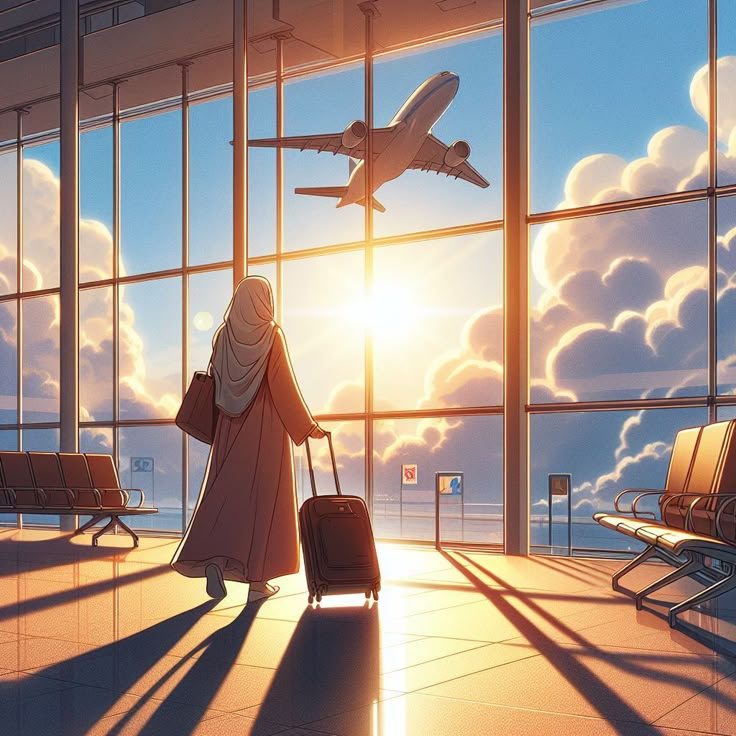
Travelling Duas in Islam offer more than protection. They guide believers spiritually, strengthen faith, and bring peace of mind during journeys. By understanding their meanings and reciting them with sincerity, every trip can become an act of worship. Following the Sunnah acts of travel adds blessings to the journey. Whether travelling for Hajj, work, or study, these supplications maintain a connection with Allah and ensure safety along with spiritual growth.
Want to know more about Islam and Duas?
Learn Quran & Islamic Studies Online with Expert Native Arabic Teachers!
One-on-one sessions, flexible timings, and personalized learning for you or your child.
Book your free trial today and start your journey of learning and spiritual growth!
FAQs
Q1: What is the main travelling dua in Islam?
A: The most comprehensive travelling dua is the one the Prophet ﷺ recited before journeys, asking for protection, ease, and spiritual guidance. It includes praise for Allah, seeking piety, and refuge from hardships during travel.
Q2: When should I recite travelling duas?
A: You can recite them:
- Before leaving the house
- When mounting or boarding a vehicle (car, plane, train, etc.)
- At the start of movement
- Anytime during the journey when you feel the need
Q3: What are common mistakes when making travelling dua?
A: Common mistakes include:
- Reciting without understanding the meaning
- Forgetting the Sunnah acts of travel (like praying 2 rak’ah, giving charity)
- Treating dua as a ritual instead of a sincere connection with Allah
Q4: What courses does Areeb Academy offer?
A: Areeb Academy offers courses in Quran reading & recitation, memorization, Arabic (Fusha & Egyptian dialect), and Islamic studies.
Q5: Who are the teachers?
A: Our teachers are native Arabic speakers fluent in English, highly experienced, and trained to teach both adults and children.
Q6: How are classes structured?
A: We offer one-on-one sessions tailored to your pace. Lessons are interactive, practical, and adapted to each student’s needs.
Q7: Are the timings flexible?
A: Yes! Classes can fit your schedule, whether you’re busy or your child has school commitments.
Q8: Is there a trial class?
A: Absolutely! We provide a free trial so you can experience our teaching style and approach before committing.
Q9: How can I enroll?
A: You can easily book a free trial or enroll online through our website. Or reach out to us on WhatsApp, and our support team will guide you through the enrollment process.”


